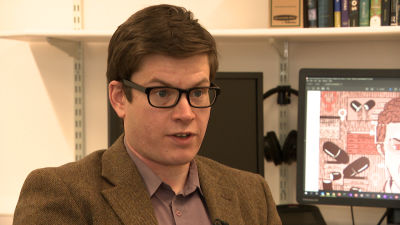What is incel culture - and why is it growing around the world?

Watch Sam Blackledge's report
Experts at the University of Exeter say a major new study tracking the rise of 'incel culture' across the world could help anti-terror efforts and prevent violent attacks.
Five months on from the shootings in Plymouth which left six people dead, new figures show a steep rise in the number of people visiting online forums dedicated to 'involuntary celibates', in which men discuss their resentment and hatred of women.
Now a team of researchers are hoping to explore how and why the movement is growing in popularity, and what the authorities can do to identify threats.
What is an 'incel'?
'Incel' is short for 'involuntary celibate'.
An incel is someone who defined themselves as unable to get a romantic or sexual partner despite desiring one.
The misogynistic culture has amassed a following online along some men who feel angry and resentful as they believe women do not find them attractive.
Dr Lewys Brace, who is leading a study into incel culture at the University of Exeter, said: "We need to develop a better understanding of the incel culture, how it can have a radicalising effect on individuals and in a very small number of cases cause them to go on to carry out violent actions."
In August last year, 24-year-old Jake Davison shot and killed five people near his home in Plymouth.
It later emerged he had been a member of online 'incel' forums. This will form part of a wide-ranging inquest into the Keyham tragedy, expected to take place later this year.
Dr Brace said: "It wasn't necessarily a surprise that eventually we saw some sort of incel-inspired violence take place. For a couple of years now we've known that people in Europe are accessing this content."
New data released by the Centre for Countering Digital Hate shows last year web traffic to three of the largest 'incel' sites grew from 114,420 monthly visits in March last year to 638,505 in November.
Why is incel culture growing?
Dr Brace said people are at home more, are isolated more and are spending more time online - particularly as a result of the pandemic.
He said: "So it makes sense that people will engage with this content more and more.
"How do you police the internet?" he added. "The short answer is - it's hard. The internet is vast. YouTube is the most popular website on the planet. The amount of material hosted on YouTube dwarfs most other websites. So trying to work out what is extreme and isn't extreme is hard."
Dr Brace and his team of researchers believe their work to track the spread of incel ideology online will help with counter-terrorism efforts and could even prevent future attacks.
Devon and Cornwall's police commissioner, Alison Hernandez, says the force is well aware the online world requires a new, less traditional kind of policing.
"The challenge is how do we remove a lot of the anonymity that happens online?" she said.
"It would be really good to see some more efforts to stop young people accessing the amount of pornography that is available online.
"Fundamentally there are too many people, particularly men, committing rape, sexual offences and ultimately murder. We need to get a grip of this."